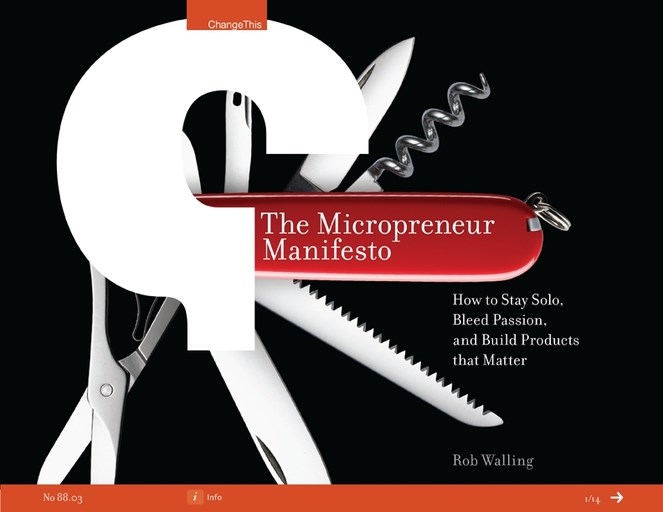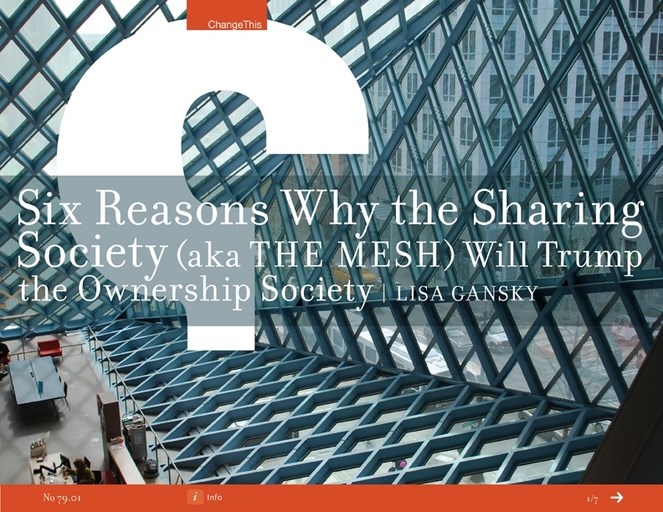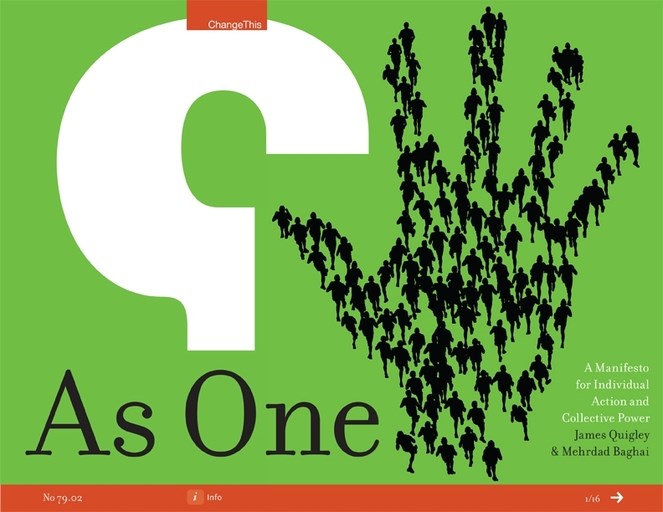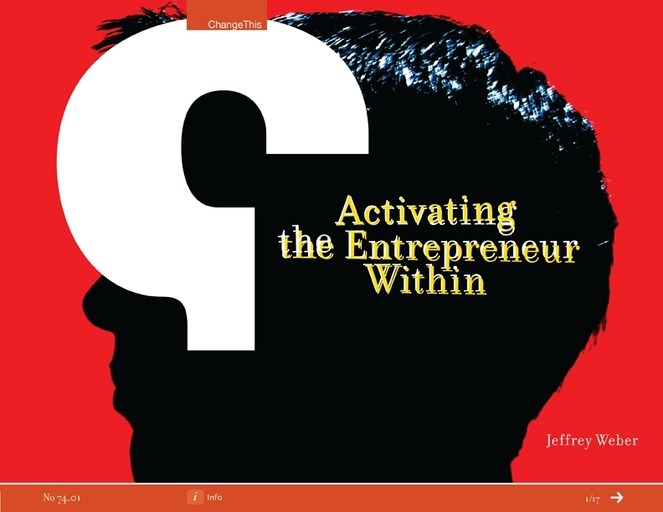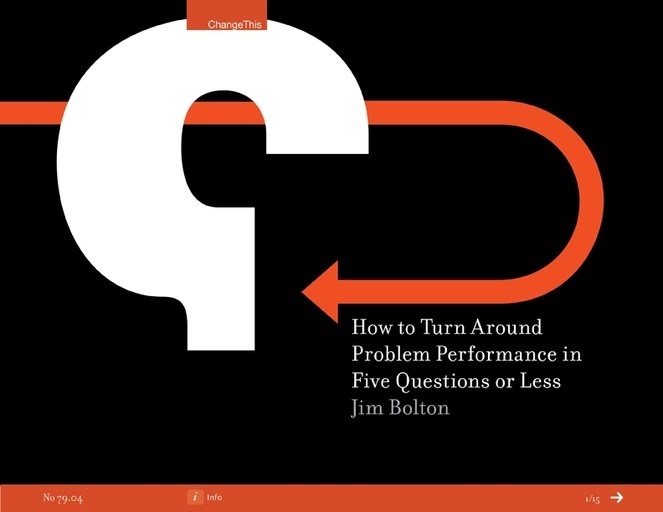ChangeThis RSS
"Single founders creating products for niche markets are known by another name: micropreneurs.
Micropreneurs may write software. They might design themes for a blogging platform. They may produce exquisite wedding invitations, or how-to books. Micropreneurs are agile, inspired, independent, knowledge seekers who can't live with the 9-to-5 status quo.
If this resonates with you, read on. This manifesto attempts to distill the key points you'll need as you begin your micropreneur journey. I learned every one of them the hard way."
Continue reading
"Get out of your chairs and into the streets, kids—the Internet has come to town. Literally. The IT revolution started by moving data around. Now mobile devices have spread the revolution to physical things—to the street. Making a reservation for a car, bike, a home or a meal from your phone connects you to the company's data, which may include information on your preferences, how they compare to other people's preferences like you (to make juicier, more personalized offers), and data collected from sensors in the car, bike, home or at the cafe. Your social networks allow you to make better informed choices of goods and services, as well as recommend the things you like. Mobile plus GPS changes everything. It means you can get more of what you want exactly when you want it. It means convenient access to fresh goods and services. Convenient access means you don't have to own something in order to have a pulse on its exact location and availability; you can use it—share it—save money while sparing hassles."
Continue reading
"As One. Five letters that make all the difference between a group of individuals and a unified team. Two words that transform individual action into collective power. One idea that can help you realize the full power of your people.
[...]
Adding the phrase "as one" to another word changes its entire meaning. Imagine the possibilities: Working versus Working As One. Competing versus Competing As One. Winning versus Winning As One. The sources of inspiration are endless. Believing As One. Stronger As One. Succeeding As One."
Continue reading
"Nobel Peace Prize winner Muhammad Yunus, an economist who is known as the 'banker to the poor' by making small loans in impoverished countries stated, 'I did something that challenged the banking world. Conventional banks look for the rich; we look for the absolutely poor. All people are entrepreneurs, but many don't have the opportunity to find that out.' An entrepreneur in his own right as founder of the Grameen Bank, Yunus developed the concept of microcredit as a method to help fund entrepreneurs who would not qualify for any other type of loan. He believed in creating economic development from the lowest tier of society and saw that the entrepreneurial dream was defined to no man; it was a gift to all.
So you, dear reader, want to know if you are an entrepreneur. It would be so easy to draw your blood and see the entrepreneurial DNA floating about and qualitatively state, "Yes, he is an entrepreneur!" But what good would this do? There still would be so much lacking outside the control of simple DNA to activate the entrepreneur within you."
Continue reading
"Underperformers suck. They suck the productivity out of a team or organization. They suck the morale out of your high performers. [...]
That begs a question that is central to this manifesto: What are underperformers costing you? How much time do you spend reacting to problems related to underperformance? Think of the things you could do with that time if you could only get it back.
There's the bait, now here's the switch. It's easy to condemn underperformers for stealing your time and contributing to the ills listed above, and they do own their share of the blame. But here's the hard truth: you do too. As a manager your job is to enable your people to achieve their performance goals. If they're not then you're underperforming in this critical area of your job. It's not really your fault that you're in this situation; managers aren't often taught how to address performance problems in people. But that's no excuse to let the status quo ride. You're doing a disservice to yourself, your team, and even the underperformer by not taking action."
Continue reading

